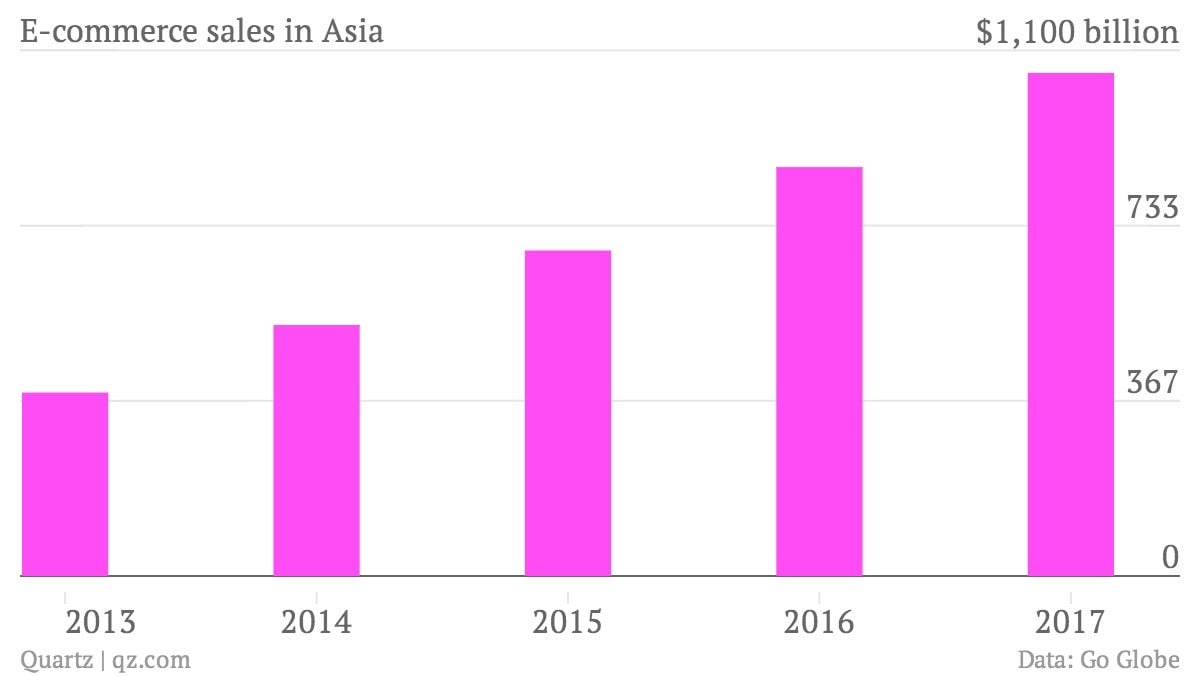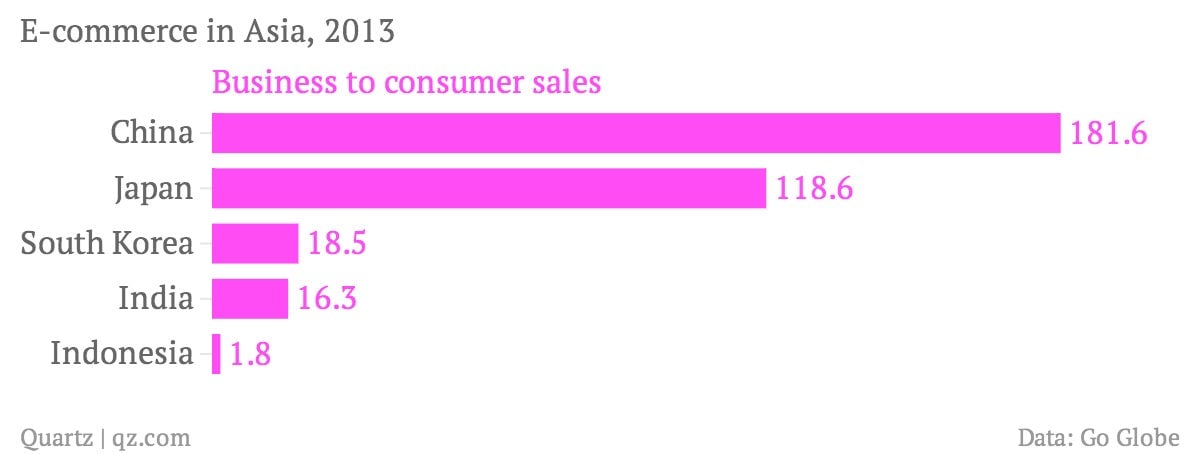This tiny deal in Singapore puts Alibaba a small step closer to global e-commerce domination
E-commerce giant Alibaba today bought 10% of Singapore’s national postal carrier, known as SingPost, for $249 million. While that’s a tiny sum compared to some recent tech deals, it’s an important international step for Alibaba: SingPost has operations in 13 countries in Asia, the fastest-growing e-commerce market in the world, and the two companies have already laid out ambitious plans.


E-commerce giant Alibaba today bought 10% of Singapore’s national postal carrier, known as SingPost, for $249 million. While that’s a tiny sum compared to some recent tech deals, it’s an important international step for Alibaba: SingPost has operations in 13 countries in Asia, the fastest-growing e-commerce market in the world, and the two companies have already laid out ambitious plans.
Among other things, they intend to build, together, a “full regional value chain of e-commerce logistics including warehousing, last mile delivery, line haul, customs clearance, parcel collection, consolidation and order fulfillment”—in other words, a system to do just about everything but manufacture the item to be shipped.
Way back in 2005, Alibaba trademarked the phrase “Global Trade Starts Here,” but it was only two years ago that the company set up a team to take Taobao, its online bazaar, global. For the last nine months of 2013, international sales were $572 million—still less than 10% of Alibaba’s total, but hardly small change.
Chinese-language buyers in Hong Kong, Taiwan and Singapore have made up much of this non-China business, but SingPost’s logistics subsidiary also has offices in Thailand, the Philippines, India, and Malaysia, all areas where e-commerce is growing quickly, and Alibaba is expected to expand as well. Alibaba already has a small but growing presence in Malaysia.
Asia is expected to surpass North America in business-to-consumer e-commerce sales this year, and analysts are predicting exponential growth for the region as a whole, compared to the steady but much slower growth in Europe and the US.

China remains the leader in Asian e-commerce, and Alibaba the dominant force in China, scooping up an estimated 80% of all e-commerce sales.

It’s little wonder, then, that Alibaba’s other recent international e-commerce deals have focused on finding foreign stuff for Chinese customers to buy, rather than shipping Chinese goods to the US or Europe. Earlier this week, Alibaba partnered with the Australian postal service to allow Australian businesses to sign up to its online shopping mall and ship directly to Chinese customers—surely handy when an Australian product becomes a hot seller in China, like these lavender-stuffed bears did earlier this year. Also this month, Alibaba signed a deal with ShopRunner, a US shipping company that partners with retailers, to allow Chinese consumers to buy goods from US websites and have them shipped quickly to China. With the SingPost deal, those US and Australian businesses may soon add Southeast Asians to their list of customers as well.